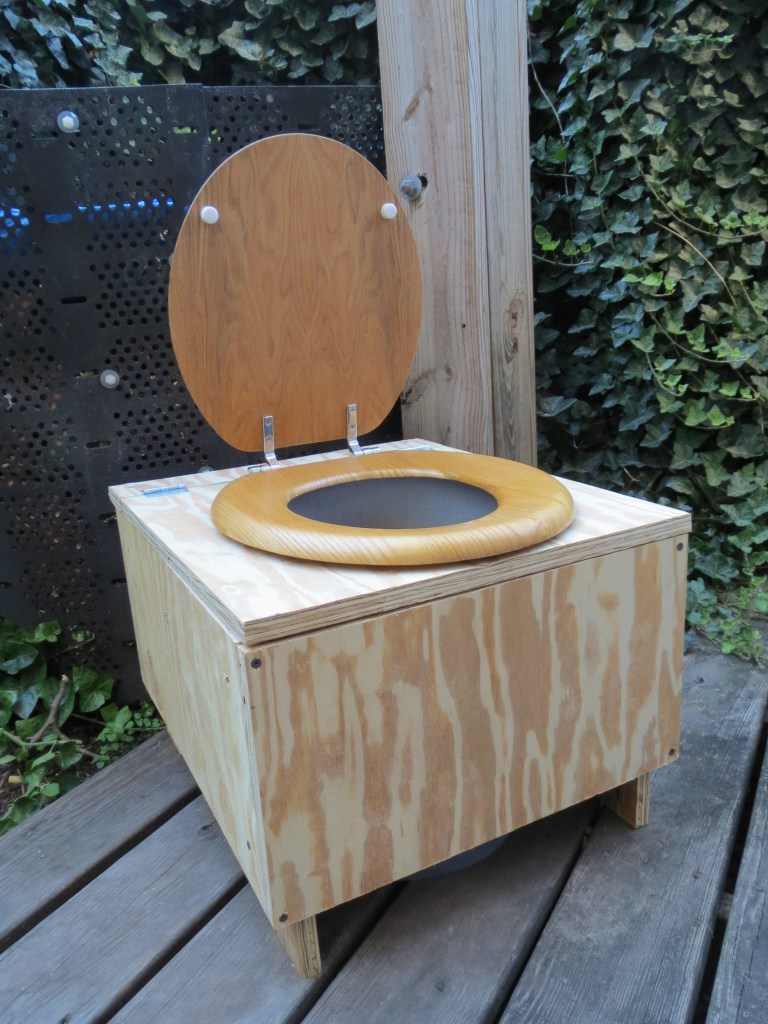
A composting toilet is a great way to save water. Image: Crazy About Compost
At last the Cape Town society has moved out of the first stage of grief – denial. This condition which is the nemesis for environmentalists over the years. How to break through the naïve hope that all will be fine, no matter how we live? How to inspire the courage to face the science?
Inevitably Mother Earth is now pitching in to teach first hand. We have to accept that humans learn best through experience, especially if there is limited capacity to imagine a future nobody wants to see.
So now folk in the drought stricken Western Cape have shifted into stage 2 – anger. Who can we blame? Local government, provincial government, national government, business, farmers. Finding the culprits seem the main interest of the media. The very ones who have virtually ignored climate science and refused to publish serious warnings and prioritise the most important news of our time.
Slipping between stages of grief
Of course it’s important to understand how this crisis was constructed. If you don’t yet grasp that this is climate change 101, then you are still in denial. And so we slip between the stages of grief. We have hundreds of stories on this topic so easy to educate yourself here.
But is there time to devote to blame, when in reality we have so much to do? Blaming serves to deflect the responsibility away from yourself. It’s a nice diversion. And somewhat entitled too. It’s like I deserve running water no-matter-what. Why?
Every time you blame someone you give your power away. Let us not get stuck in victim thinking and now fast track to acceptance. If you need to go via depression, then all good. But don’t tally there. Don’t let it immobilize you. We have work to do.
Get ready and do a test
My advice is to get yourself ready, then do a test run. Shut down your water mains and see if you are ok. Sort out the problems that arise. Regard it as a game, and adventure of sorts. We can do this.
The empowering question to reflect on is: ‘what is MY contribution towards the problem and what can I do about it?’
Now is the time to FOCUS on how you can change and what you can get in place, depending on your resourcefulness. Now is the time to be creative – we are so much more capable than we realise. Indeed not as helpless as we think.
What do you have in place?
Here are some questions to help you think practically about the future:
- Do you have sufficient rainwater stored up? There are still reconditioned oil drums available for reasonable prices. (For more information call Peninsula Drums on 021 374 1161)
- Do you have a good filter to clean your rain water to drinking standards?
- Do you have a dry or composting toilet of some kind installed? Anyone can build this, if you have a bit of garden to make compost in.
- Are you saving your body’s nutritious water (urine), diluting it and watering your most important trees – which would be fruit trees at this point? Growing food will become more important. (Our next crisis will be a food crisis. Be prepared for that also.)
- If you have a pool, is that now a natural water reservoir? This could be very important for growing food, especially if you have fish inside, which add great nutrients. Easy to do yourself. Shout if you need help.
- Think also why this is unfolding – due to your and my fossil fuel consumption. Hence: are you off the fossil fuels in terms of energy and transport? This is the next important milestone. It makes no sense to respond to the crisis whilst we still continue to create it. Our children deserve better.
Mine is not an exhaustive list, however a good start. And getting this in place should keep us so busy that we don’t have time to complain.
Preparing is a mindset stooped not in negativity, but in realism. In the end embracing and being the change helps us be present and available to help others. We are in this boat together. We need each other. It has hit the iceberg, but now let us do what we can to keep it afloat.
Do share your tips and ideas with us.
By Elma Pollard


Leave a Reply or Follow